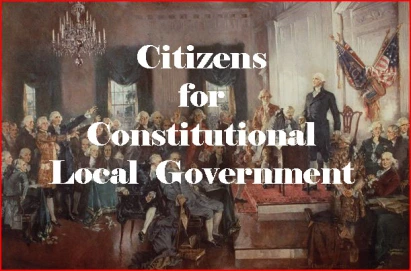In a parallel that can be made with Plessy v. Ferguson (163 U.S. 537,1896) and its enlightened reversal in Brown v. Bd of Education (347 U.S. 483,1954), the NJ Supreme Court’s opinion in Dublirer v. 2000 Linwood Avenue Owners (2014) accomplished the same necessary correction of its earlier opinion in CBTW v. Twin Rivers (929 A.2d 1060, 2007) with respect to HOA constitutionality.
In Plessy, the “separate but equal” doctrine was developed to uphold segregationist laws. In Brown, it was successfully argued that “separate but equal” did not apply to the education of black children and integrated schools were necessary.
(I have read the court filings and briefs in the following cases thanks to the people at the Rutgers Constitutional Litigation Clinic, Frank Askin, Director).
In Twin Rivers, addressing the one issue of many dealing with the equivalent of separate but equal free speech for HOA members, the Court found that alternate means of member free speech was available – that is, the alternate methods were separate but equal – and upheld the constitutionality of the HOA’s restrictions. The HOA was not open to the public and was entirely a private entity and not a municipality (factual statement).
The trial court favored the HOA, while the appellate court favored the members. “In a published opinion, the Appellate Division reversed the trial court, holding that the Association was subject to state constitutional standards with respect to its internal rules and regulations.”
At the NJ Supreme Court,
Plaintiffs [homeowners] asserted that the community room policy denied them equal protection of the laws and unreasonably and unconstitutionally violated their right to access the community room on a fair and equitable basis. They sought temporary and permanent injunctions “to allow [p]laintiffs to utilize the community room in the same manner as other similarly situated entities.
They urge that political speech is entitled to heightened protection and that they should have the right to post political signs beyond the Association’s restricted sign policy. Plaintiffs further contend that the excessive fees charged for the use of the community room are not reasonably related to the actual costs incurred by the Association. Finally, plaintiffs claim that the State Constitution requires that the Association publish plaintiffs’ views on an equal basis with which the Association’s views are published in its newspaper.
The NJ Supreme Court held,
We conclude that the limited nature of the public’s invitation to use the property does not favor a finding that the Association’s rules and regulations violated plaintiffs’ constitutional rights.
We find that the minor restrictions on plaintiffs’ expressional activities are not unreasonable or oppressive, and the Association is not acting as a municipality.
In Dublirer,
The [condo] Board, citing a ‘House Rule’ that barred soliciting and distributing any written materials, denied the request. On prior occasions, though, the Board had distributed written ‘updates’ under apartment doors throughout the building, which criticized the Board’s opponents. The resident filed a lawsuit and claimed that the House Rule was unconstitutional.
The panel [appellate decision] noted that Dublirer’s expressional activity was ‘political-like speech’ because it related to the management and governance of the common-interest community. The panel found that the restriction left Dublirer without reasonable alternative means to convey his message.
Thus, even though Dublirer did not run for public office, his message was akin to and should be treated as political speech, which is entitled to the highest level of protection in our society. . . . If anything, speech about matters of public interest, and about the qualifications of people who hold positions of trust, lies at the heart of our societal values. . . . We therefore find that the Board’s House Rule violates the free speech guarantee in New Jersey’s Constitution.
So we see how the NJ Supreme Court recognized the de facto political government nature of HOAs, representing a shift in attitude from ‘HOAs are just businesses’ agreed to by its members to the need for constitutional protections. The Court essentially declared that the HOA’s restrictions in regard to campaigning were not separate but equal methods as used by the board itself. Further, it appears that this Court believes that HOAs are akin to public governments and the election of board members is tantamount to a local public election and must be constitutionally protected.
To ensure that local community government works for the member-owners, shouldn’t due process protections and the equal protection of the laws under the 14th Amendment require judicial support and enforcement against HOA violations? And that these rights deserve supremacy over privately drafted contracts that have as their objective the dismissal of constitutional protections? I think so! So should state legislators!

HOA’s act like dictators and assume power they do not legally possess.
Very positive development by the NJ Supreme Court. It’s about time!
I so so agree that homeowners should have access to the HOA media, which is our Quarterly Newsletter, to express opinions on the governance by the Board. I have been personally blasted twice by the board in the newsletters. I have distributed flyers at open meetings to the 40 or so seniors that attend out of the 920 units. One time three of the board members corraled me in a corner and tried to grab the flyers. Their attorney advised them that I have the right to distribute flyers, so no problem after that, but I still can only reach a small number without spending a lot of money to mail the information. I live in San Diego County and would love to hear from anyone who experiences the same and the name of a good HOA consumer attorney here that could help with all the illegal stuff.